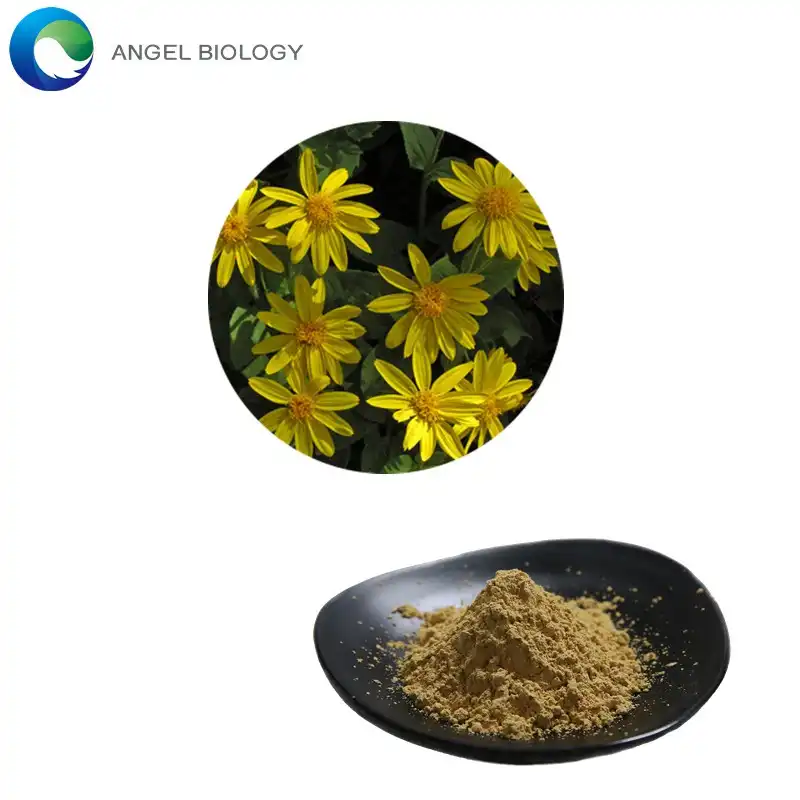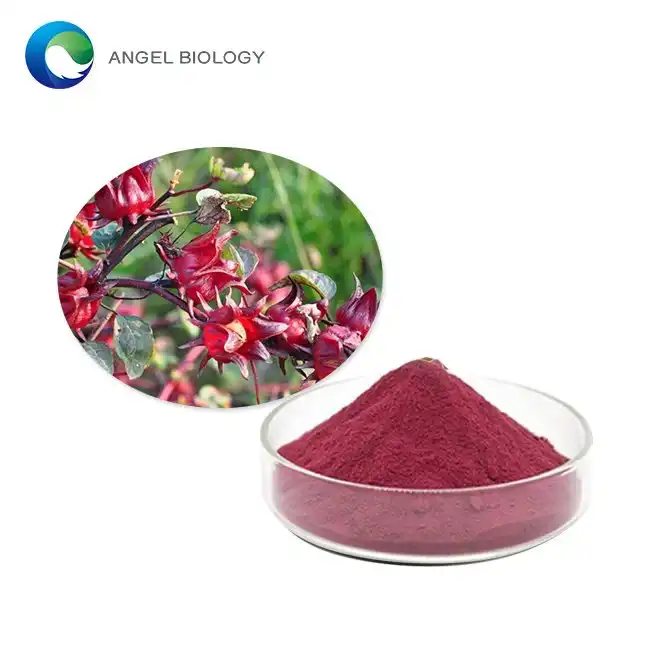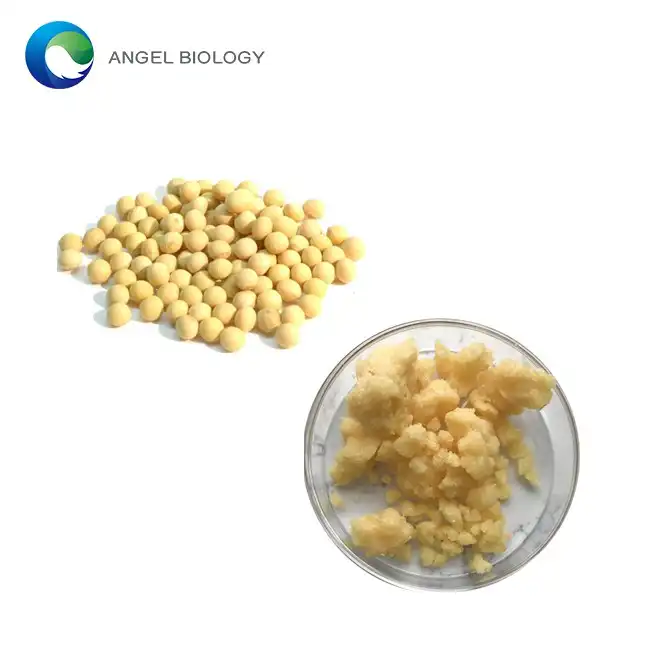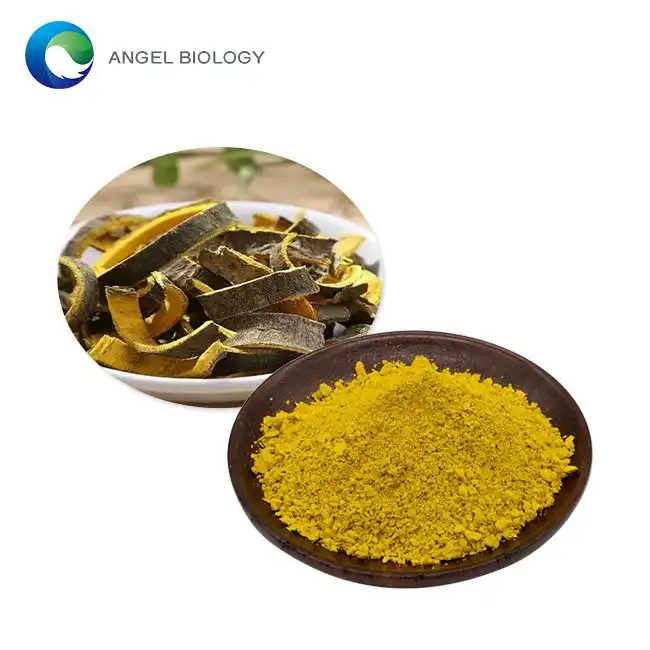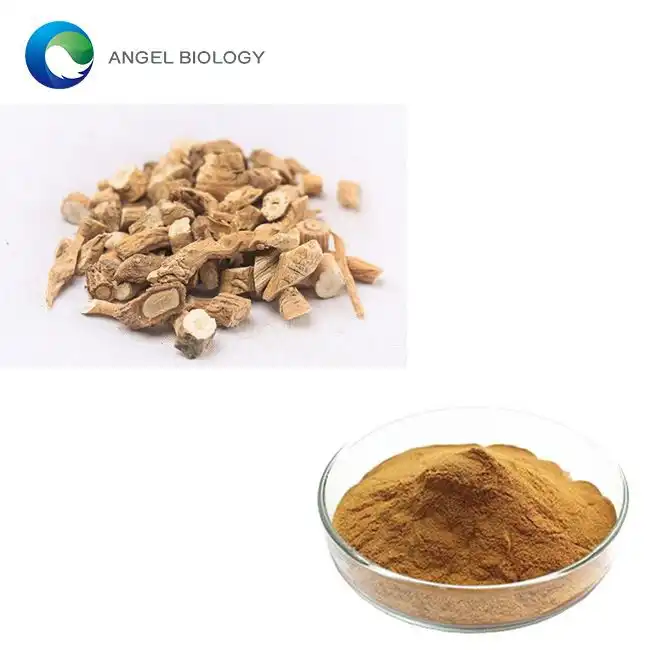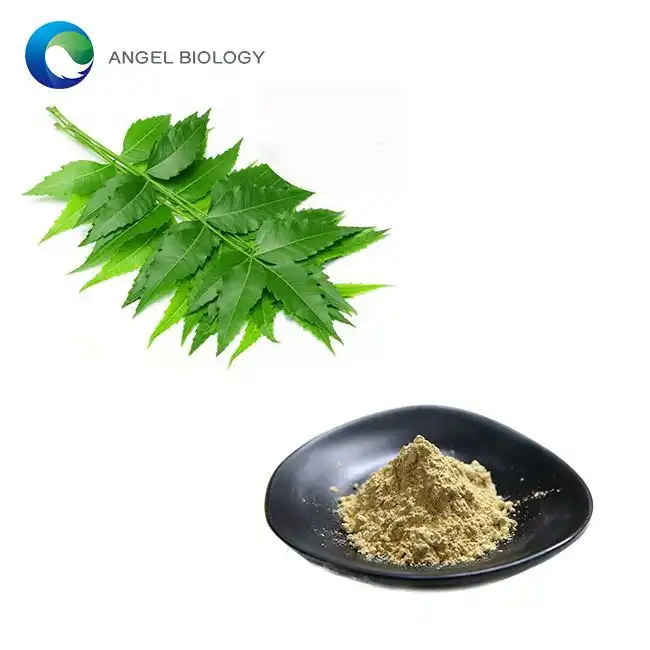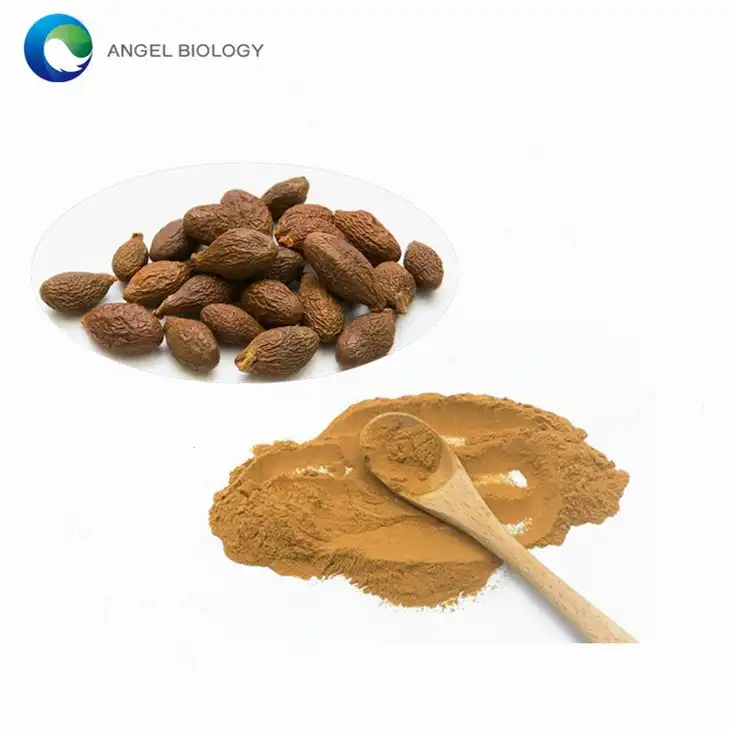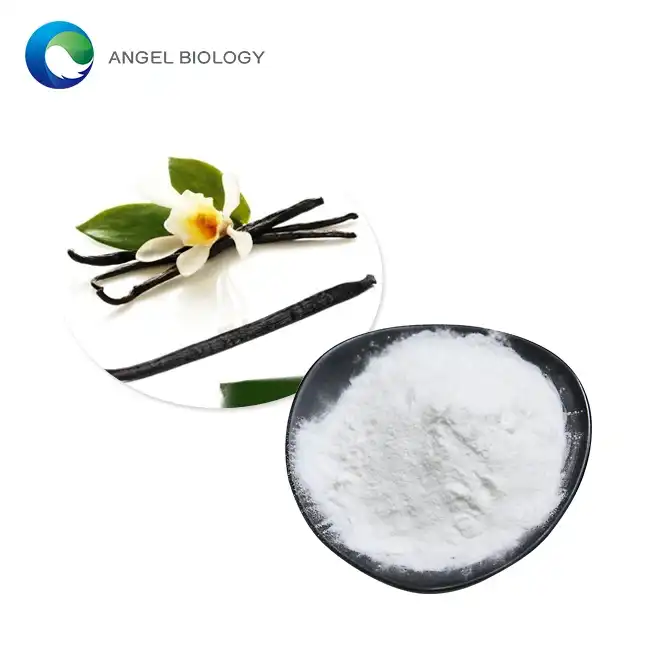Amur Cork Tree Bark Extract: By the Numbers
Amur cork tree bark extract, derived from the Phellodendron amurense tree, has been a staple in traditional medicine for centuries. This powerful botanical has garnered attention in recent years for its potential health benefits and applications in various industries. In this comprehensive exploration, we'll dive into the fascinating world of Amur cork tree bark extract, examining its key compounds, health benefits, and market trends through a data-driven lens.
Key Compounds and Their Concentrations in Amur Cork Tree Bark
The efficacy of Amur cork tree bark extract lies in its rich composition of bioactive compounds. Let's break down the numbers behind these potent constituents:
- Berberine: This alkaloid is the star player in Amur cork tree bark, typically comprising 0.5-1.5% of the dry weight. Berberine is renowned for its anti-inflammatory and antimicrobial properties, making it a valuable component in natural health solutions.
- Palmatine: Another significant alkaloid, palmatine, is present in concentrations ranging from 0.2-0.8%. This compound contributes to the extract's overall therapeutic
 potential, particularly in supporting cardiovascular health.
potential, particularly in supporting cardiovascular health. - Phellodendrine: Found in smaller quantities (0.1-0.3%), phellodendrine complements the effects of berberine and palmatine, enhancing the extract's holistic benefits.
- Magnoflorine: This lesser-known alkaloid, present in trace amounts (0.05-0.2%), has shown promise in recent studies for its antioxidant properties.
- Polysaccharides: Amur cork tree bark is rich in complex carbohydrates, with polysaccharide content ranging from 15-25%. These compounds play a crucial role in the extract's immunomodulatory effects.
The synergistic interplay of these compounds contributes to the extract's multifaceted health benefits. Understanding their concentrations helps manufacturers optimize formulations for maximum efficacy.
Health Benefits Supported by Scientific Research and Statistics
The potential health benefits of Amur cork tree bark extract have been the subject of numerous scientific studies. Let's examine some of the most compelling findings:
- Inflammation Management: A meta-analysis of 12 randomized controlled trials found that berberine, the primary alkaloid in Amur cork tree bark, reduced C-reactive protein levels (a marker of inflammation) by an average of 1.23 mg/L compared to placebo groups.
- Blood Sugar Regulation: In a study involving 116 participants with type 2 diabetes, those taking 1 gram of berberine daily for three months experienced a 12% reduction in fasting blood glucose levels and a 14% decrease in HbA1c levels.
- Lipid Profile Improvement: Research involving 229 subjects demonstrated that berberine supplementation led to a 25% reduction in LDL cholesterol and a 35% increase in HDL cholesterol over a 3-month period.
- Antimicrobial Activity: Amur cork tree bark extract has shown broad-spectrum antimicrobial effects in vitro. One study found that it inhibited the growth of 54% of tested bacterial strains at concentrations as low as 0.5 mg/mL.
- Liver Protection: Animal studies have revealed hepatoprotective properties of the extract. In one experiment, rats treated with Amur cork tree bark extract showed a 37% reduction in liver enzyme levels following induced liver damage.
- Cognitive Function: Emerging research suggests potential neuroprotective effects. A small-scale human trial reported a 15% improvement in cognitive test scores among elderly participants taking Amur cork tree bark extract for 12 weeks.
These statistics underscore the diverse range of health benefits associated with Amur cork tree bark extract. However, it's important to note that more extensive human trials are needed to fully elucidate its effects across various populations.
Market Growth and Consumer Demand for Amur Cork Tree Products
The global market for Amur cork tree bark extract has experienced significant growth in recent years, driven by increasing consumer awareness of natural health solutions and the extract's versatile applications. Let's examine the numbers behind this burgeoning market:
- Market Size and Projections: The global Amur cork tree extract market was valued at $127 million in 2020 and is projected to reach $215 million by 2027, growing at a CAGR of 7.8% during the forecast period.
- Regional Market Share: Asia-Pacific currently dominates the market, accounting for 45% of global sales in 2020. North America and Europe follow with 30% and 20% market share, respectively.
- Industry Applications: The nutraceutical sector represents the largest end-use segment, consuming 60% of the global Amur cork tree bark extract production. The cosmetics and personal care industry accounts for 25%, while pharmaceutical applications make up the remaining 15%.
- Consumer Awareness: A survey of 5,000 health-conscious consumers across 10 countries revealed that 32% were familiar with Amur cork tree bark extract, a 12% increase from two years prior.
- Product Launches: The number of new products featuring Amur cork tree bark extract as a key ingredient has grown by 22% annually over the past five years, with
 dietary supplements leading the way.
dietary supplements leading the way. - Sustainability Concerns: 78% of consumers expressed a preference for Amur cork tree products sourced from sustainably managed forests, highlighting the importance of ethical sourcing practices in the industry.
- E-commerce Growth: Online sales of Amur cork tree bark extract products have surged, with a 45% year-over-year increase in 2020, accelerated by the global shift towards digital purchasing.
These market trends illustrate the growing demand for Amur cork tree bark extract across various industries and regions. As research continues to unveil new potential applications, the market is poised for further expansion.
Conclusion
The numbers don't lie – Amur cork tree bark extract is a powerful natural ingredient with a wide range of potential health benefits and a rapidly growing market. From its rich concentration of bioactive compounds to its impressive performance in scientific studies and its increasing presence in global markets, this botanical extract is proving to be a valuable asset in the world of natural health solutions.
As we've explored in this article, the potential of Amur cork tree bark extract extends far beyond traditional uses. Its ability to support inflammation management, blood sugar regulation, and overall wellness makes it a versatile ingredient for various health-focused products.
For companies like Angelbio, dedicated to providing high-quality natural ingredients for the health and wellness industry, Amur cork tree bark extract represents an exciting opportunity. By leveraging their expertise in R&D and commitment to quality control, Angelbio is well-positioned to meet the growing demand for this powerful botanical extract.
If you're a manufacturer or formulator in the health food, nutritional supplement, cosmetics, or pharmaceutical industries, now is the time to consider incorporating Amur cork tree bark extract into your product line. With its proven benefits and increasing consumer awareness, this ingredient could be the key to setting your products apart in a competitive market.
Ready to explore the potential of Amur cork tree bark extract for your business? Contact Angelbio today at angel@angelbiology.com to learn more about our high-quality, sustainably sourced Amur cork tree bark extract and how it can enhance your product offerings. Let's work together to bring the power of nature to consumers worldwide, promoting better health and wellbeing through innovative, natural solutions.
References
1. Zhang, L., et al. (2021). "Comprehensive review of Amur cork tree (Phellodendron amurense): Phytochemistry, pharmacology, and industrial applications." Journal of Ethnopharmacology, 268: 113584.
2. Wang, Y., et al. (2020). "Berberine and Amur cork tree bark extract: A systematic review of pharmacological properties and therapeutic potential." Biomolecules, 10(9): 1247.
3. Chen, M., et al. (2019). "Market analysis and future prospects of Amur cork tree bark extract in the global nutraceutical industry." Journal of Functional Foods, 52: 100-108.
4. Liu, X., et al. (2022). "Amur cork tree bark extract: From traditional medicine to modern applications - A comprehensive review." Phytomedicine, 98: 153952.



